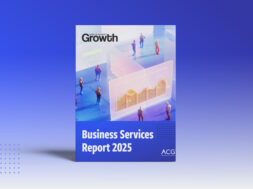Split’s Creek: Human Analysis Separates Itself from AI
Inaccurate findings from automated due diligence can jeopardize a deal in progress, underscoring the importance of human analysis.

This article is sponsored by Corporate Resolutions.
This story originally appeared in the May/June 2020 print edition of Middle Market Growth magazine. Read the full issue in the archive.
In the past, the background investigations business was defined by access: who could get what and by what means. Today, with easy access to thousands of sources, the importance is not who can get the information (we all can) but rather its quality.
“Knowledge is power” is an axiom often used when talking about investing; the same is true for due diligence. Understanding the tools and knowing where to go and how to decipher documents is what separates a useful background investigation from a receipt-style printout of records billed as a “risk report.”
Artificial intelligence, known as AI, has penetrated every aspect of our lives—from cars to health care to devices used in our homes. In many industries, AI’s application is technologically beneficial. In the investigations game, however, AI is contradictory to the objective of a background check.
The damage of misinformation, especially false positives, impacts both sides of the deal: Investors look foolish and sellers must defend themselves against misdirected accusations. Inaccurate findings and assumptions arise from automated due diligence solutions. Seasoned investors know that important transactions require human analysis; it is the difference between fiction and fact.
Insulating your reputation is critical. Consider this scenario: An automated “red flag” review turns up online criminal records for the talented CEO of the company you’re looking to buy. When asked, the CEO tells you it was one minor altercation from years ago and the charges were dropped.
This was a situation one of our clients faced, and experienced investigators discovered that the story had quite a different spin. The CEO was lying and the multiple, repeat criminal charges were quite serious, revealing a questionable character. Thankfully, our client had the complete picture and ultimately walked away from the deal, knowing the CEO’s misrepresentations and behavior were too risky.
There are many other examples that illustrate how human analysis saved the day, including reading court documents in a civil lawsuit and discovering a corporate culture of sexual harassment; deciphering legal summaries in contract actions to find fraud and money laundering; and sifting through a banal social media account to reveal a publicly problematic “following” (read: addiction) of pornography. Delivering critical information and providing a useful narrative can only be properly executed through a thorough human examination of information.
Deal flow predictions change daily, but what is certain is that investors should never compromise due diligence—no matter the environment.

Joelle Scott is chief operating officer of Corporate Resolutions Inc. She has over 20 years of experience in investigative due diligence.


